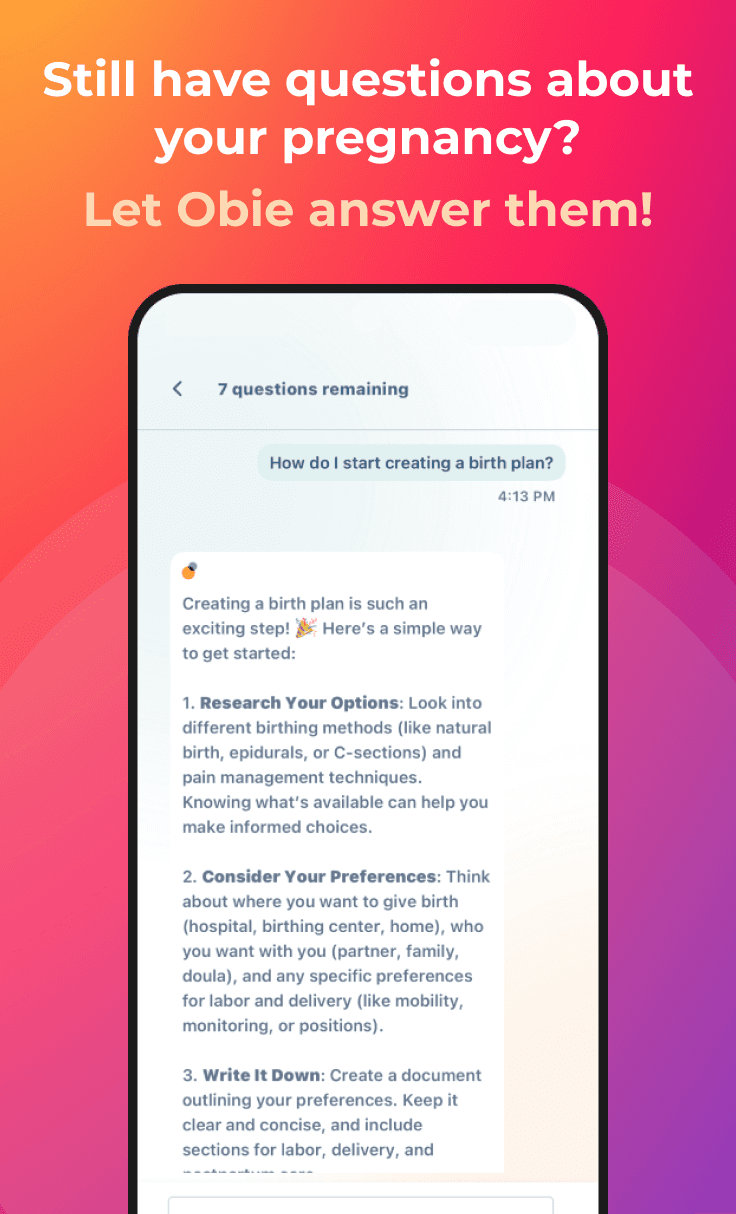Common Tests During Pregnancy
Prenatal Testing
Obie Editorial Team
 One of the things you may not be expecting while you are expecting is the number, and variety, of tests you will undergo while pregnant. Some of the tests are trimester specific and others will be performed routinely throughout your pregnancy. If your doctor recommends a test that you are unfamiliar with don’t be afraid to ask questions about the test and what the results for each test mean.
One of the things you may not be expecting while you are expecting is the number, and variety, of tests you will undergo while pregnant. Some of the tests are trimester specific and others will be performed routinely throughout your pregnancy. If your doctor recommends a test that you are unfamiliar with don’t be afraid to ask questions about the test and what the results for each test mean.Ultrasound
An ultrasound is one of the tests you can expect throughout pregnancy. There are two different types of ultrasound tests you should expect, a transvaginal ultrasound and an abdominal ultrasound. During a transvaginal ultrasound an ultrasound transducer will be covered with a condom and gel and will then be inserted into the vagina. During the first few weeks a transvaginal ultrasound can be used to confirm pregnancy and to make sure the embryo is in the proper location. During an abdominal ultrasound, gel is put either on the abdomen or on the ultrasound transducer and the transducer is then moved around the abdomen. An abdominal ultrasound can be used to measure, size, location and position of the fetus as well as the heart rate. An ultrasound is also used to detect abnormalities and to verify amniotic fluid levels are sufficient. If the pregnancy is proceeding without complications ultrasounds can be expected around weeks eleven (nuchal screen), nineteen (anatomy screen), and thirty-two (fetal growth) although these dates can vary depending on the preference of the doctor.
Blood and Serum Tests
There are two different blood serum tests that are typically performed during the first trimester, the PAPP-A and the hCG. The PAPP-A tests for abnormal levels of a protein found in early pregnancy that can indicate chromosome abnormalities in the fetus and is usually done together with a sonogram which measures the fetus' nuchal thickness. The hCG tests for abnormal levels of a hormone that can also indicate a higher risk for chromosome abnormalities. During the second trimester you will likely have an AFP blood test. This test is used for a variety of purposes and abnormal readings let doctors know when additional tests are needed. Some of the things this test can indicate are chromosomal abnormalities, twins, and a miscalculated due date.
Glucose Tolerance Test
The glucose tolerance test is usually done between weeks twenty-four and twenty-eight. This test is used to determine if the mother has gestational diabetes. Prior to the test you will not be allowed to eat anything for approximately twelve hours. As soon as you arrive you will give a blood sample to test your fasting glucose level. You will then drink a glucose solution and have your blood drawn every hour for the next three hours. You will not be allowed to eat until the testing is completed.
Group B Strep Culture
Group B Streptococcus (GBS) are found in a quarter of all women and usually cause no symptoms prior to pregnancy. However, GBS can cause significant problems in both the mother and the baby after delivery if not treated. A vaginal and rectal culture will be taken between weeks thirty-five and thirty-seven. If the test is positive for the bacteria, an antibiotic will be given.









